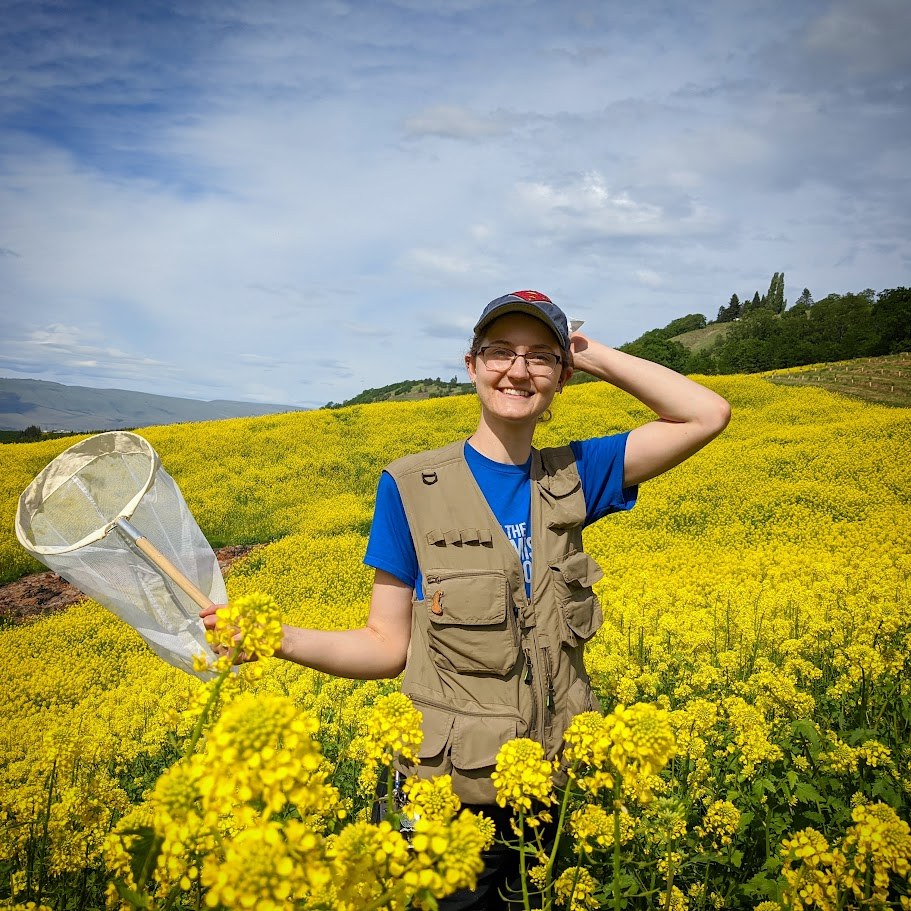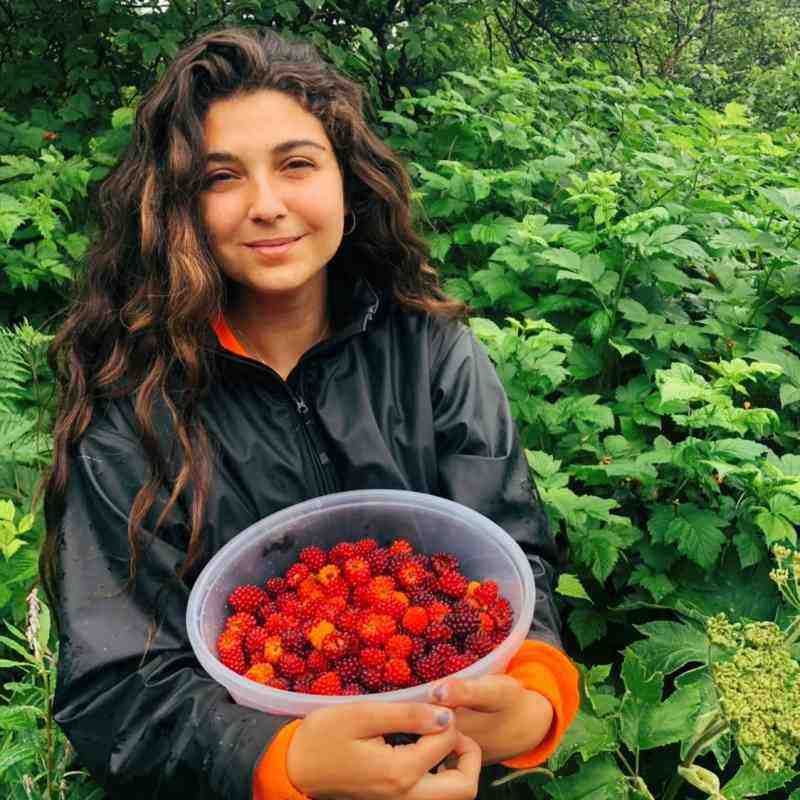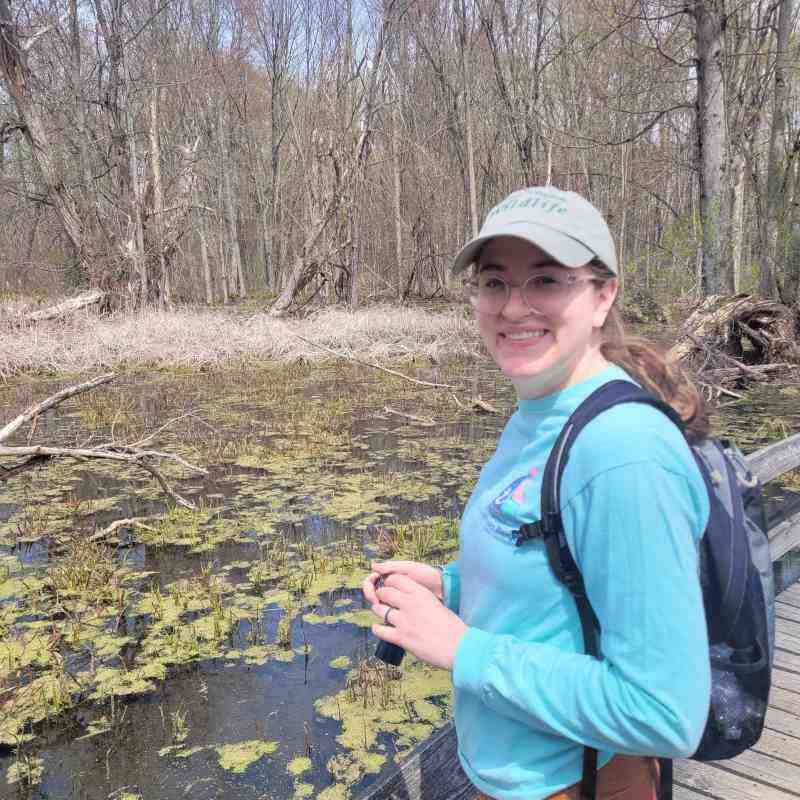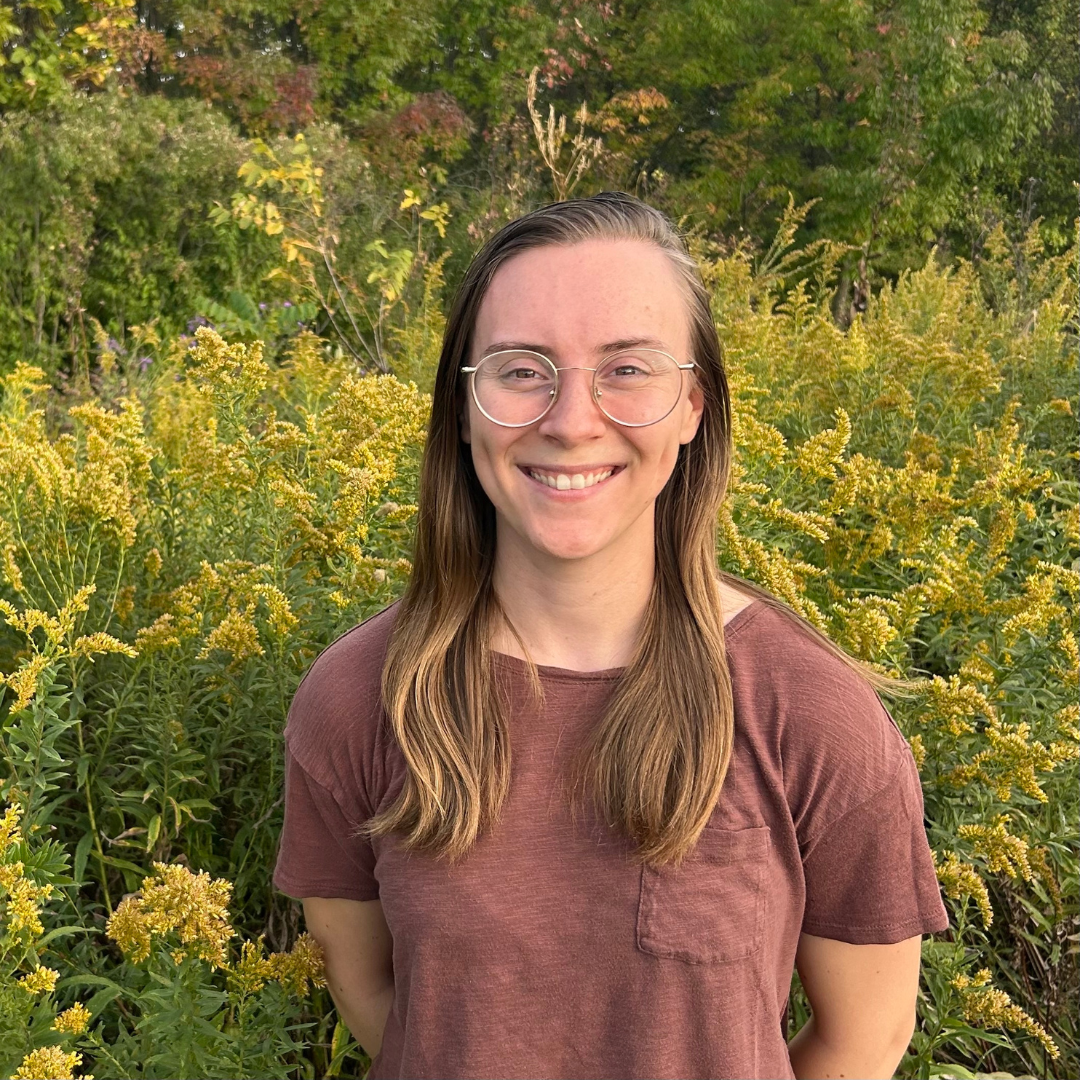Meet Our Partner Biologists
-
Emily Carlson, PhD
Emily holds a Bachelor of Science in Biology from Gonzaga University and a PhD in Horticulture with a Concentration in Entomology from Oregon State University. Prior to joining Pollinator Partnership, she served two years with the Washington Conservation Corps (AmeriCorps), then worked for the King Conservation District and a wetland nature preserve. Through these positions, she performed on the ground restoration and facilitated adult educational workshops for farmers, ranchers, and other land managers who sought to improve natural resources on their working lands. While pursuing her PhD, Emily focused on understanding how native bees and honey bees experience pesticide exposure differently in agricultural production areas. Through this work, Emily partnered with land managers and beekeepers to help them achieve their pest management goals while protecting pollinating insects in their fields. In her role with P2, Emily helps land managers plan and implement pollinator habitat through Farm Bill programs. Contact her for assistance with understanding pollinator needs, connecting to educational resources, accessing federal funding pools, and conservation planning support. Emily is based out of Oregon but serves the Western USA.
Contact Emily at: ecarlson@pollinator.org or fill out our Western Assistance Request Form
-
Isabel Nazarian
Growing up in rural Ohio, Isabel developed an early love for native plants and local ecosystems. She assisted in her first restoration project at the age of 15 and volunteered at nearby park districts. She graduated from Ohio State's School of Environment and Natural Resources specializing in environmental science and ecosystem restoration. Isabel spent years in honey bee research, caring for over 100 hives around Ohio while conducting research on pesticides and analyzing CRP. She has also worked in ecosystem restoration, helping to execute WRP and other contracted plans through vegetation management, seed selection and seeding, erosion control, tree planting and more. With Pollinator Partnership, she is here to help landowners access all the resources they need to implement pollinator conservation on their land. Isabel is based in central Ohio and offers assistance to the Midwestern region. Contact her for assistance navigating NRCS programs, locating monetary and educational resources, questions about site preparation, species suggestions, best management practices, planning assistance or if you aren’t sure where to start! Isabel will also be putting together trainings, workshops, and outreach events for producers to better understand how they can incorporate pollinator habitat on their land while reaching their goals.
Contact Isabel at isabel@pollinator.org or fill out our Midwest Assistance Request Form
-
Lacey Smith
Lacey graduated from West Virginia University with a Bachelor’s in Environmental Geoscience and a Master’s degree in Forestry, with emphasis on understory biodiversity. After graduation, she worked as a Pollinator Specialist/Partner Biologist for the West Virginia Division of Natural Resources (WV DNR) and USDA Natural Resource Conservation Service (NRCS). Lacey joined Pollinator Partnership in 2023 as the Northeast Regional Partner Biologist. In this role, she works in joint capacity with NRCS to promote, coordinate, and implement conservation efforts that relate to pollinator conservation (site visitations, creating native seed mixes, and planning for Wildlife Habitat Plantings, Tree/Shrub Establishment, Conservation Cover, and other pollinator related conservation practices) on private lands. Lacey also provides pollinator related educational outreach and training to NRCS staff, producers, partners, and landowners through in-person and virtual events for rural, agricultural, and urban agriculture environments. Lacey is located in central New York but provides assistance throughout the northeast.
Contact Lacey at lacey@pollinator.org or fill out our Northeast Assistance Request Form
-
Sophia Sorboro
Sophia graduated from Kent State University with a Bachelor of Environmental and Conservation Biology and a Bachelor of Environmental Studies. After graduating college, Sophia completed two conservation-focused years of service with AmeriCorps and then worked as a Watershed Coordinator for a Soil Water Conservation District. Through these roles, Sophia provided technical assistance, conservation planning support, and environmental education and outreach to urban and rural communities across Summit, Tuscarawas, and Columbiana counties. As Pollinator Partnership’s Ohio Partner Biologist, Sophia assists traditional, small, specialty, urban, and other producers across eastern Ohio with establishing pollinator friendly habitat by providing Farm Bill application and conservation planning support. Sophia conducts site visits, provides follow-up resources including but not limited to: maps, habitat drawings, seed mixes, site preparation and management direction, connections to local and federal conservation agencies, and federal program application assistance.
Contact Sophia at: sophia@pollinator.org or fill out our Midwest Assistance Request Form
-
Ella Stroh
Ella grew up in Missouri and has spent time working in agriculture and natural resources throughout the Midwest. She earned her Bachelor’s degree in Environmental Studies from Centre College in Kentucky. While in college, she worked on a small, organic farm and learned hands-on about fruit and vegetable production. Her experience in diversified farming piqued an interest in sustainable agriculture and natural resource management, particularly pollinator conservation. After undergrad, Ella pursued a Master’s degree in Entomology at Purdue University. There, she worked on Indiana farms for three years, researching native bees and the pollination services they provide to apples, blueberries, tomatoes, and watermelons. During her time at Purdue, Ella collaborated with 29 growers across operations of all different sizes, developed Extension materials about Indiana pollinators, and helped assess the effectiveness of conservation seed mixes. She enjoys communicating with growers about the importance of native bees and working with them to explore what habitat and management practices may be a good fit to help meet their operation’s economic and land stewardship goals. As P2’s Indiana Partner Biologist based in Lafayette, Indiana, Ella is able to apply her experience in agriculture, pollination biology, natural resources management, and landowner engagement. She assists traditional, small-scale, specialty, urban, and other producers across central Indiana with establishing pollinator friendly habitat by providing Farm Bill application and conservation planning support.
Contact Ella at: estroh@pollinator.org or fill out our Midwest Assistance Request Form
Regional Assistance Request Forms
Northeast Assistance Request FormMidwest Assistance Request Form
Western Assistance Request Form



